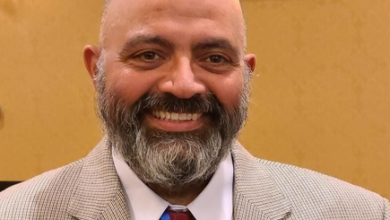Promoting Mental Health and Well-being Among African American Men

Mental health is a critical aspect of overall well-being, yet African American men face unique challenges in accessing and maintaining mental health. These challenges include societal stigma, cultural factors, and the pervasive impact of stress and trauma. Understanding and addressing these issues is crucial for promoting mental health and well-being among African American men. This article examines the barriers they face, provides relevant statistics and research, and highlights resources and initiatives aimed at fostering mental health.
The Unique Mental Health Challenges
- Stigma Around Seeking Help
- Societal Stigma: In many African American communities, mental health issues are often stigmatized, leading to reluctance in seeking help. According to the American Psychological Association, only one-third of African Americans who need mental health care receive it.
- Cultural Perceptions: Mental health issues are sometimes viewed as a sign of weakness or a personal failing. This cultural perception can prevent African American men from seeking the help they need.
- Cultural Factors
- Historical Trauma: The legacy of slavery, segregation, and ongoing racial discrimination has contributed to a collective historical trauma. This trauma can have lasting effects on mental health across generations.
- Cultural Competence: Many mental health professionals may lack cultural competence, making it difficult for African American men to find providers who understand their unique experiences and perspectives. This can lead to mistrust and reluctance to seek help.
- Impact of Stress and Trauma
- Chronic Stress: African American men often face chronic stress due to economic instability, discrimination, and systemic racism. The American Psychological Association reports that African Americans are more likely to experience serious psychological distress than white Americans.
- Exposure to Violence: Higher rates of exposure to violence, whether in the community or through interactions with law enforcement, can lead to increased rates of PTSD and other mental health disorders.
Statistics and Research
- Prevalence of Mental Health Issues
- Depression and Anxiety: According to the National Institute of Mental Health (NIMH), African American men are less likely to receive a diagnosis of major depressive disorder compared to white men, but they are more likely to report severe symptoms of depression. Anxiety disorders are also prevalent but often go untreated.
- Suicide Rates: Suicide is a significant concern, with African American men being more likely to die by suicide than their female counterparts. The CDC reports that suicide rates for African American men have been steadily increasing.
- Barriers to Care
- Healthcare Access: The Substance Abuse and Mental Health Services Administration (SAMHSA) indicates that African American men are less likely to have health insurance, which limits their access to mental health services.
- Mistrust of the Healthcare System: Historical abuses, such as the Tuskegee Syphilis Study, contribute to a deep-seated mistrust of the healthcare system, making African American men more hesitant to seek mental health care.
Promoting Mental Health and Well-being
- Resources and Support Networks
- Therapy for Black Men: This organization provides a directory of mental health professionals who are culturally competent and experienced in working with African American men.
- Black Men Heal: Offering free therapy sessions to African American men, Black Men Heal aims to break the stigma and provide access to mental health care.
- National Alliance on Mental Illness (NAMI): NAMI offers support groups and educational programs specifically designed for African American communities.
- Community-Based Initiatives
- Barbershop Mental Health Programs: Initiatives like The Confess Project use barbershops as venues for mental health education and conversations, leveraging the trusted relationships between barbers and their clients.
- Faith-Based Support: Churches and religious organizations often play a significant role in African American communities. Integrating mental health support into faith-based settings can provide accessible and trusted resources.
- Policy and Advocacy
- Increasing Access to Care: Policies that expand Medicaid and improve access to mental health services are crucial. Advocacy for mental health parity laws ensures that mental health care is covered equally by insurance plans.
- Cultural Competence Training: Mandatory cultural competence training for mental health professionals can improve the quality of care for African American men and reduce barriers to seeking help.
- Educational Campaigns
- Public Awareness: Campaigns to raise awareness about mental health issues and reduce stigma are essential. Initiatives like Mental Health Awareness Month and Minority Mental Health Awareness Month focus on these goals.
- School Programs: Incorporating mental health education into school curriculums can help young African American men understand the importance of mental health and reduce stigma from an early age.
Addressing the mental health challenges faced by African American men requires a comprehensive approach that includes increasing access to culturally competent care, reducing stigma, and implementing community-based initiatives. By leveraging resources, support networks, and policy changes, we can make significant strides in promoting mental health and well-being among African American men. Creating a supportive and understanding environment is crucial for ensuring that they receive the care and support they need to thrive.





